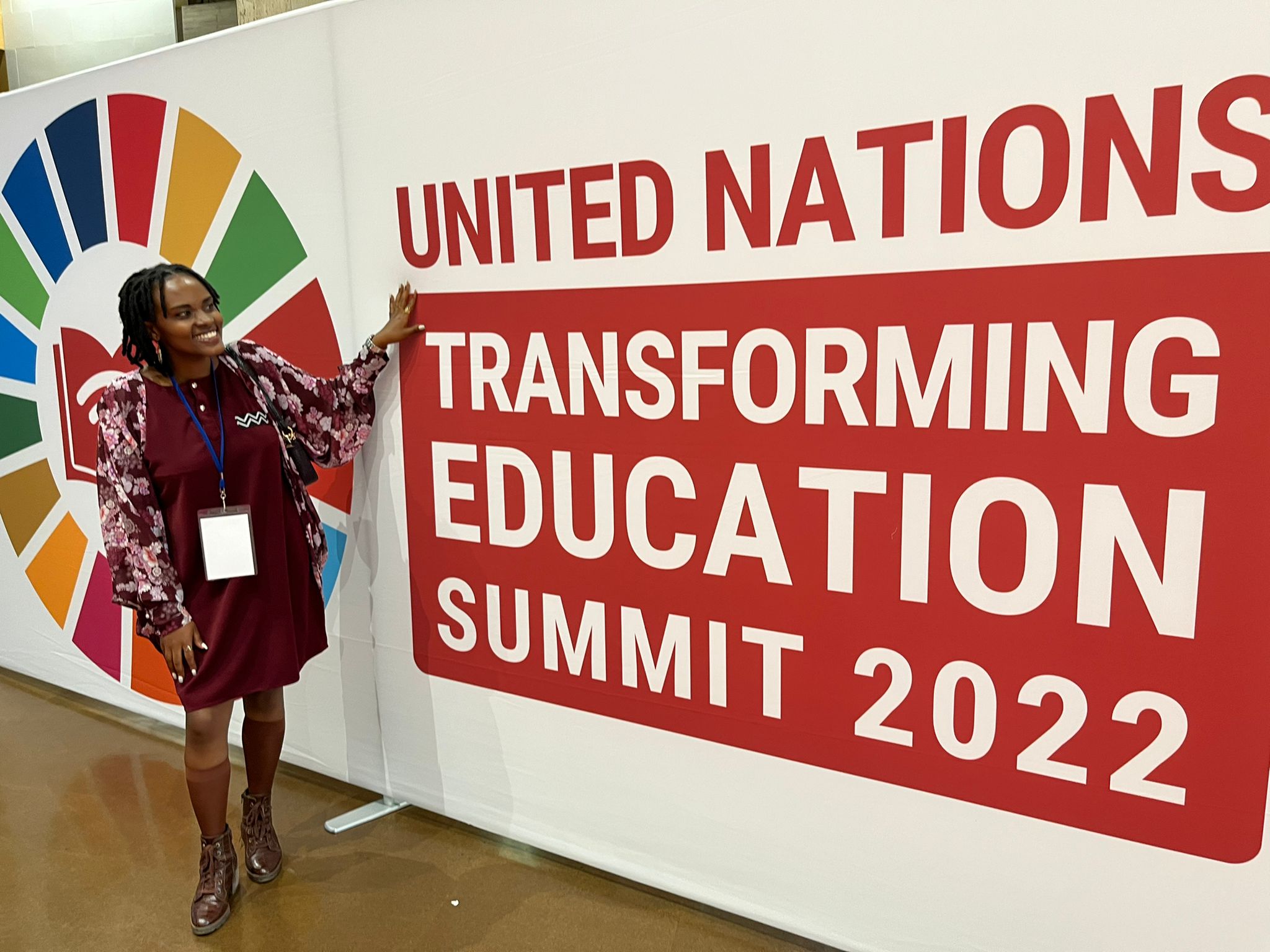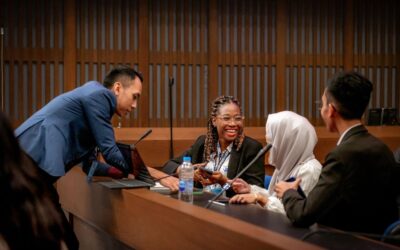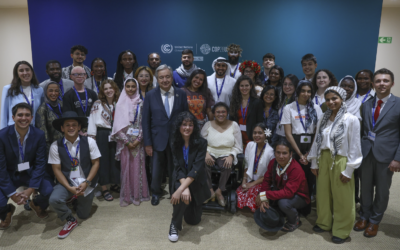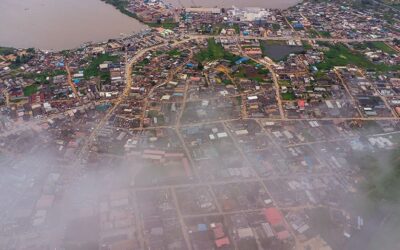I attended the pre-summit held in Paris – France from the 28-30 June 2022.
I want to use this space to reflect back on what happened and share some of my key takeaways across the three days of the pre-summit and note a few key recommendations as we plan for the coming summit in September.
The pre-summit aimed to generate a shared understanding on the key elements of transformed education landscapes to inform the Secretary-General’s Summit Outcome Document and Call to Action in September 2022. Its overall objective was to capture the evolving discussions on transforming education, elaborate initial content for the Summit in New York and generate greater momentum in the lead up to September. It was held in hybrid format, with approximately 2,000 participants in person and nearly 9,000 virtually including Ministers of Education, Finance, Development Cooperation, UN agencies and multilateral organisations, regional organisations, young people, parents, teachers/educators, civil society and experts.
The three days of the pre-summit were divided into two main parts: The first part was day one which was for global engagement and everyone involved in the public mobilisation and the last 2 days were allocated to the ministerial discussions and the action track priorities.
The first day of the pre-summit consisted of meetings of the International Commission on the Futures of Education, Youth Forum, Business Forum and the Meetings across all the 5 thematic Action tracks.
On this day, I joined the youth forum which was designed as a space for dialogues of young people, policy‐makers and other stakeholders on transforming education.
Across the pre-summit, the SDG 4 Youth Network played a leading role on youth representation and Young people present reiterated that unless youth voices are listened to, Transforming Education will not be possible.They emphasised on passing on the mic to young people especially those furthest behind from countries that are severely impacted by the growing education crises and where the majority of the world’s young people live and in most cases they are the missing majority. It was clear throughout the conversation that the pre – summit was a time to assess how young people are being engaged in the lead up to and at the summit.
On the second day, I joined other young people in the in-person consultation of the youth declaration which was led by the UN Envoy on Youth Ms.Jayathma Wickramanayake. She articulated the need for the youth declaration and said that it would be a snappy, simple document made by young people consulted in this collective effort and will contribute to the main outcome document which will be released at the summit in September. During this first in person consultation young people shared their priorities and the need for transformation and change in the education system and emphasised on the role of young people in making decisions at all levels. The office of the envoy on youth confirmed that there will be other virtual consultations and they are planning to engage young people in the wider network.
On the last day, I spoke in a side meeting led by Dubai Cares and The Education Commission on Rewiring Education for people and planet where we discussed the cross sectorial action to deliver 6 win – win solutions to rewire Education for people and planet alongside the Ministers of Education, HE Tariq Al Gurg of Dubai Cares, Dr. Liesbet Steer of Education commission, Aishwarya Machani and the First lady of Colombia. I highlighted the need to create diverse and certifiable routes for youth to build skills to promote sustainable economic growth which is similar to the priorities young people raised during the big brainstorm of the Unlock the future Coalition. The need to recognize non-formal education, investing in high quality accessible digital content and open sources that are adaptable to local contexts and cater diverse needs of young people including those with disability was prominent in the conversation.
Furthermore on the same day, during the main session on Action Track 1 on “inclusive, equitable and healthy schools”, we heard case studies and perspectives from Côte d’Ivoire, Ecuador, Canada, Zambia, and The United Nations Population Fund (UNFPA). We also heard stories and perspectives of young people about what safe, inclusive, equitable and healthy schools mean in the current reality.
The speakers spoke on the role of inclusivity and accessibility. They highlighted that it is important to facilitate inclusive access to education and equitable learning and recommended that there should be intentional mechanisms put in place to facilitate equitable learning opportunities for all learners and must ensure that all children master the foundational skills of literacy and numeracy in the lower primary grades to benefit fully from other elements in the curriculum.
Finally every speaker on the stage strongly emphasised on the power of youth and why Transforming Education is only possible with young people at the table. As we look ahead for the summit, I would like to put forward a few recommendations that might be considered in the planning of the summit to ensure that we meaningfully engage young people:
1. There is still a need to provide capacity building opportunities so that young people understand this space and their role. In many cases at the big influencing platforms like these global events, even though some youth voices are supported through speaking opportunities and funded travel, young people are not given enough time and the capacity to contribute from the beginning of the planning.
2. It is important to give young people access to actual policy processes and intergovernmental negotiations.
3. Ensure an inclusive and diverse youth representation to make the space for diverse speakers and experiences to be shared and considered in the formal process leading up to and during the Summit and ensuring that no one is left behind and respond to all educational needs.
4. Actively engage children and youth organisations in the lead up to and at the summit.
5. It will be crucial to enforce the national youth delegations and to make information accessible as we look ahead for the summit.
The Summit is almost here!
See you at the Transforming Education Summit in New York.
Alice
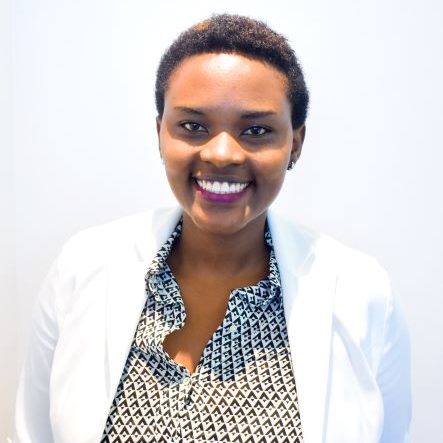
Alice Mukashyaka Alice Mukashyaka is a UN Fellow and the Advocacy Manager for Livelihoods and Education at Restless Development. In this role most recently, Alice coordinated the biggest youth-led study on global education since the pandemic hit, the 'By Us, For Us' and convened the #MakeEducationWork campaign in partnership with the RewirED Summit, reaching nearly 13 million young people. She is the co-founder of Starlight, a Rwandan Ed-tech social enterprise that makes STEM learning kits and introduces high school students to STEM careers, mentorship, and role models. Previously, Alice was a Mastercard Foundation Youth Ambassador where she coordinated meaningful youth participation for the MasterCard Foundatio's report on Secondary Education in Africa. She was also a Youth Think Tank researcher, exploring barriers women and girls face in STEM and construction fields, delivering a report with a call to action of linking women to new industries as a way of driving social and economic change in Africa. Alice advocates for meaningful youth engagement and access to quality education for all. Her education background covers global challenges from the African Leadership University and she lives to witness a sustainable world with equal access to opportunities and safety.
